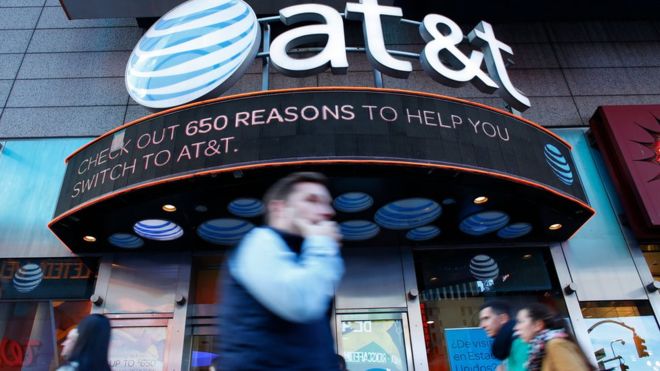US appeals against At&T-Time Warner merger
July 13, 2018 | Expert Insights

The US Justice Department has decided to appeal against a landmark court ruling that made way for telecom giant AT&T to buy Time Warner.
Background
After inventing the telephone in 1876, Alexander Graham Bell along with Hubbard and Sanders formed the Bell Telephone Company in 1877. AT&T was incorporated in 1885 as a subsidiary of Bell, to build and operate the first long-distance telephone network. In 1899, AT&T bought Bell's assets and became the parent company of the entire Bell system.
Initially, AT&T operated as a monopoly, with the grudging acceptance of the United States government. But in 1984, following the settlement of a civil antitrust suit with the Justice Department, "Ma Bell" was split into seven regional "Baby Bells." AT&T kept Bell Labs, telephone equipment manufacturer Western Electric and a long distance service.
In September 1995, AT&T announced a restructuring that would amount to the largest voluntary break-up in the history of American business. In October 2000, AT&T said it would restructure into a family of four separately traded companies, for its consumer, business, broadband and wireless operations.
Time Warner Inc. is one of the largest media and entertainment conglomerates in the world. Time Warner was founded by the merger of Warner Communications and Time Inc. in 1990 and is headquartered in NYC. It consists of three major divisions: Home Box Office Inc.(HBO), Warner Bros. Pictures Inc., and Turner Broadcasting System Inc. Its products primarily encompass motion pictures and broadcast and cable television programming and distribution.
In 2016 AT&T confirmed its $85 billion acquisition of Time Warner Inc., pending federal regulatory review.
Analysis
The Justice Department on Thursday filed notice that it is appealing a judge's approval of AT&T's purchase of Time Warner.
The merger deal brings together AT&T Wireless, DirecTV, U-Verse, HBO, Warner Bros. and the Turner networks. It gives the new AT&T control of both the pipes and some of the media content that flows through them. It will also be competing against giants like Netflix and Facebook, which has grown to 130 million global subscribers.
Judge Richard Leon, who presided over the lawsuit, ruled last month that the government had failed to show that the deal violates antitrust law. AT&T has since completed the acquisition of Time Warner, including CNN.AT&T has re-named the division Warner Media, created as a separate unit from the rest of the company, in part in case of an appeal.
The Justice Department sued to stop the deal last year, saying that the deal could increase price for consumers and would hurt innovation and competition. But after a six week trial, Judge Leon wrote in his ruling,"The Government has failed to meet its burden of proof to show that the merger is likely to result in a substantial lessening of competition." He also warned the government against an appeal, writing in his decision " As my 170-plus page opinion makes clear -- I do not believe that the Government has a likelihood of success on the merits of an appeal."
Now the case will go to the D.C. Circuit Court of Appeals, where a three-judge panel will hear the appeal. This case could have an interesting turn by ending up in front of the Supreme Court as it has not taken any merger case since the 1970s.
"The Court's decision could hardly have been more thorough, fact-based, and well-reasoned. While the losing party in litigation always has the right to appeal if it wishes, we are surprised that the DOJ has chosen to do so under these circumstances. We are ready to defend the Court's decision at the D.C. Circuit Court of Appeals," AT&T General Counsel David McAtee said in a statement.
The ruling was seen as a green light for other companies to pursue mergers, and in the ensuing months, bidding wars have erupted between Comcast and Disney for big chunk of 21st Century Fox's assets.
Counterpoint
A&T is in a unique position to leverage Time Warner's programming. AT&T wants to make sure viewers see its media content on as many platforms as possible, including rival cable and wireless companies. This increased reach will allow them to offer attractive deals to their own customers and bring down the cost. These deals could persuade would-be cord cutters to pay AT&T for its content , similar to the Netflix subscription.
Assessment
Our assessment is that AT&T’s merger deal gives scope for better targeted advertising and this raises questions of data privacy. We feel that the D.C. court of appeals must give its verdict after carefully reviewing the effects of this merger on the consumers. We believe that the court should place U.S. Justice Department’s appeal on a fast track because the longer an appeals process takes, the more integrated the two companies will become.








Comments